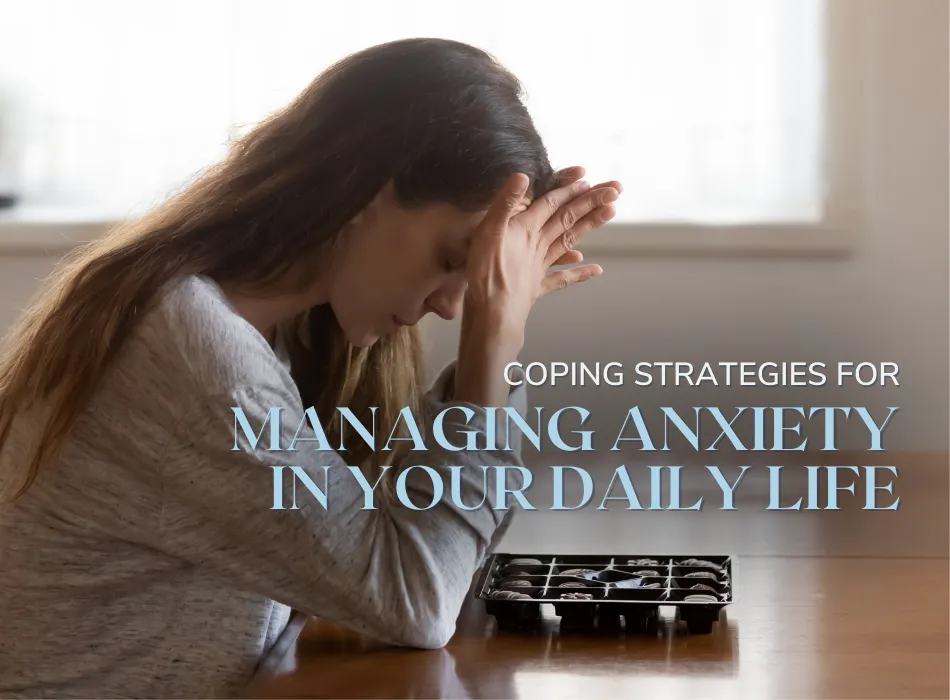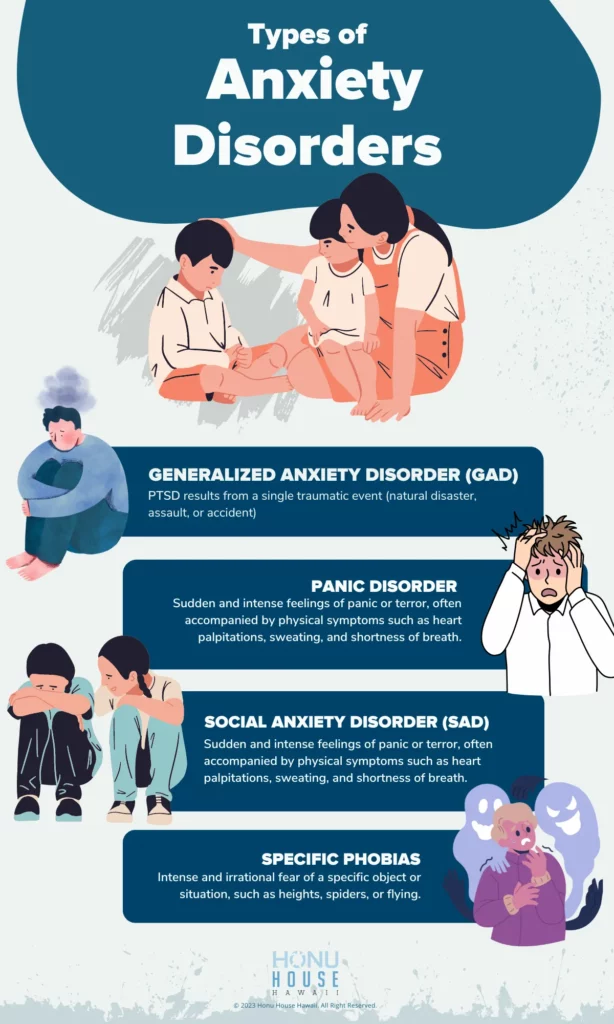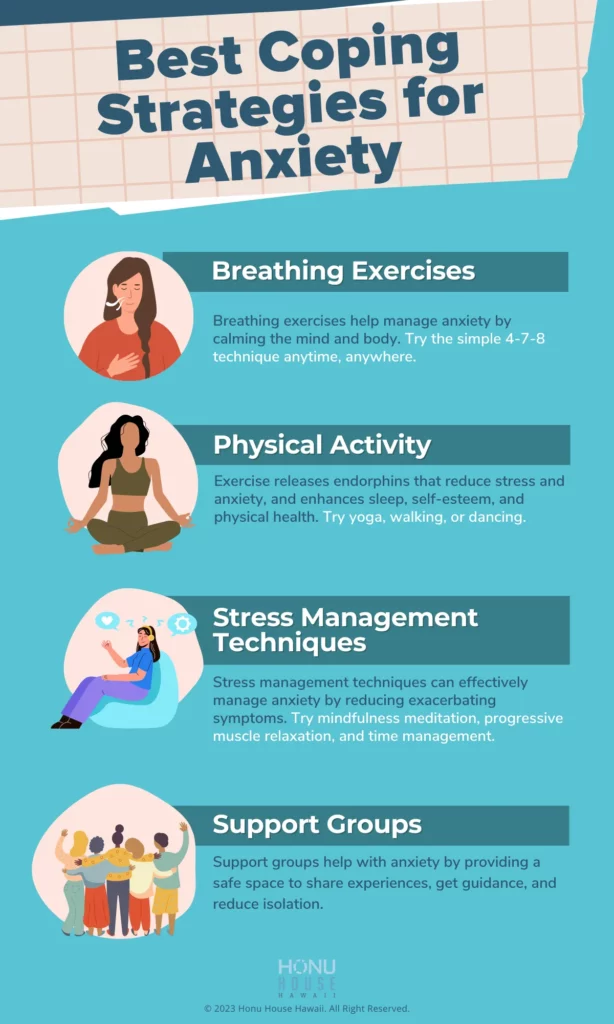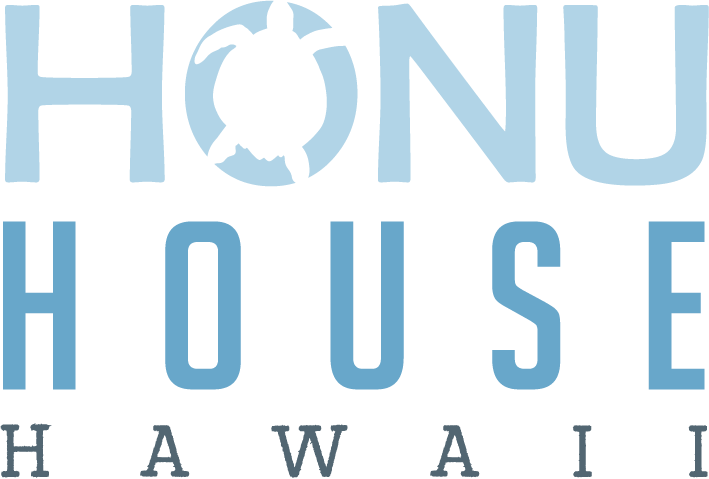
Effective Coping Strategies to Manage Anxiety
-
By John Burke
-
April 13, 2023
Anxiety is a common mental health condition affecting anyone at any age. The symptoms of anxiety can be overwhelming and impact daily life. However, there are coping strategies for anxiety that you can use to manage and reduce its impact. In this blog, we will discuss strategies to manage anxiety.
Understanding Types Of Anxiety
Understanding the types of anxiety disorders is crucial for effective anxiety disorder treatment. Recognizing conditions like Generalized Anxiety Disorder (GAD), Panic Disorder, Social Anxiety Disorder, or Specific Phobias is the first step towards tailored support and successful anxiety disorder treatment strategies.
Generalized Anxiety Disorder (GAD)
GAD is persistent and excessive worry about everyday concerns, such as health, work, family, or finances. Individuals with GAD may experience physical symptoms like restlessness, muscle tension, fatigue, and difficulty concentrating.
Panic Disorder
Panic disorder involves recurrent and unexpected panic attacks. These attacks are intense episodes of fear or discomfort that can come on suddenly and reach a peak within minutes. Physical symptoms of panic disorder include rapid heart rate, shortness of breath, and sweating.
Social Anxiety Disorder (Social Phobia)
Intense fear of social situations, especially those involving judgment or scrutiny by others. Individuals with social anxiety may go to great lengths to avoid social interactions or situations. Physical symptoms may include blushing, trembling, sweating, or a racing heart in social situations.
Specific Phobias
Intense and irrational fear of a particular object or situation, such as heights, spiders, flying, or enclosed spaces. People with specific phobias often go to great lengths to avoid the object or situation that triggers their fear.
Stress can negatively impact physical health, leading to high blood pressure, heart attack, and other health issues. On the other hand, coping with anxiety can lead to reduced stress and improved overall well-being.

Anxiety is a normal and natural response to stress and uncertainty. However, when it becomes excessive and persistent, it can lead to an anxiety disorder. Therefore, understanding anxiety symptoms and learning how to manage them is essential to protect physical and mental health. Explore coping strategies for anxiety and depression that can help manage anxiety and reduce its impact on daily life.
Breathing Exercises
Breathing exercises as part of strategies for coping with anxiety is a powerful way to calm the mind and body. The 4-7-8 breathing exercise is a simple technique you can use anywhere and anytime. To do this exercise:
- Sit comfortably with your back straight, and inhale through your nose for 4 seconds. Hold your breath for 7 seconds, then exhale slowly through your mouth for 8 seconds. Repeat this coping exercise for anxiety for a few minutes. Focusing on the sensation of the air moving in and out of your body.
Another breathing exercise that can help manage anxiety is abdominal breathing.
- This technique involves placing one hand on your chest and the other on your belly. Take a deep breath through your nose, and feel your stomach rise as you fill your lungs with air. Slowly exhale through your mouth, feeling your stomach fall as you release the air from your lungs. Repeat this exercise for a few minutes, focusing on the sensation of your breath moving in and out of your body.
Breathing exercises are easy and effective ways to cope with anxiety. Focusing on your breath can calm your mind and body, reducing anxiety symptoms. Adding these techniques into your daily routine can help you feel more grounded and centered, and improve your overall well-being.
Also Read : Links Between Exercise, Stress, and Addiction Recovery
Physical Activity
Engaging in physical activity as one of the coping mechanisms for anxiety is an excellent way to manage anxiety and enhance overall well-being. Exercise releases endorphins, which are feel-good chemicals that can help reduce stress and anxiety. Regular exercise can also improve sleep quality, boost self-esteem, and enhance physical health. Various forms of physical activity can be valuable in managing anxiety.
Yoga is a popular coping strategy for anxiety. Incorporating physical postures, breathing exercises, and meditation to reduce stress. The slow movements and deep breathing in yoga help calm the mind, alleviate muscle tension, and enhance relaxation.
Walking, a low-impact exercise, conveniently offers an option for managing anxiety as you can do it anywhere. Walking reduces stress and anxiety by allowing physical activity and releasing endorphins. Walking improves physical health by promoting heart health, reducing chronic disease risk, and enhancing overall fitness.
Dancing is a fun and engaging way to get moving and release endorphins. Dancing can help reduce stress and anxiety, improve mood, and promote social connections. It can also help improve self-esteem and body image, improving mental health and well-being.
Dancing can help with anxiety and mental health. It doesn’t matter if you’re in a class, out with friends, or alone in your room.
Adding physical activity into your routine can be a valuable coping strategy for managing anxiety. You can do it through yoga, walking, dancing, or other forms of exercise. Regular physical activity can help reduce stress and anxiety and improve overall well-being. However, always consult a healthcare provider before starting a new exercise routine to ensure safety.
Stress Management Techniques
In addition to coping strategies, stress management techniques can also effectively manage anxiety. Stress can exacerbate anxiety symptoms, so finding ways to reduce stress can be helpful. Here are a few methods to try:
Mindfulness meditation: Mindfulness meditation is a relaxation technique focusing on the present moment without judgment. Practicing mindfulness meditation regularly can train your brain to become more aware of the present moment. This act can help reduce stress and anxiety.
Progressive muscle relaxation: Technique that involves tensing and relaxing different muscle groups in your body. By doing so, you can release tension in your muscles and reduce stress and anxiety. Progressive muscle relaxation can also help improve sleep, relieve headaches, and improve overall well-being.
Time management: Poor time management can lead to stress and anxiety. Creating a schedule and prioritizing tasks can reduce stress and improve productivity. Knowing what needs to be done and when can reduce stress and anxiety.
Incorporating stress management techniques into your daily routine can help reduce stress and anxiety. You can reduce stress and improve your quality of life by exercising meditation, progressive muscle relaxation, and time management.

Support Groups
Support groups can be an excellent resource for individuals struggling with anxiety disorders. People can share their experiences and receive support and guidance from others in these groups. Support groups can make people with anxiety feel less alone.
Sharing experiences can also foster a sense of community and belonging. This can be especially helpful for those who feel isolated or misunderstood.
Support groups can also offer practical tips and coping strategies for managing anxiety symptoms. Breathing exercises, mindfulness, and stress management are standard anxiety management techniques shared in support groups. Additionally, support groups can help individuals develop a sense of empowerment and agency over their mental health. Hearing from others who have successfully managed their anxiety, individuals may feel more hopeful.
Many resources are available if you’re interested in joining a support group for anxiety. Ask your physician about local groups or search online for virtual groups you can enter anywhere. Group support can help you manage anxiety and improve your mental health.
Managing Panic Attacks
Panic attacks can be a common symptom of anxiety disorders. Symptoms of a panic attack include rapid heart rate, sweating, and trembling. Here are a few tips for managing panic attacks:
Take deep breaths: Taking deep breaths can help slow down your heart rate and reduce panic attack symptoms. Focus on the present moment: Panic attacks can make you feel like you are losing control. Instead, focus on your surroundings and what you can see, hear, and touch to ground yourself. Use positive self-talk: Remember that panic attacks are temporary, and you can get through them.
Seek help: If panic attacks impact your daily life, talk to your healthcare provider. They may be able to recommend medication or therapy to help manage symptoms.
Honu House Hawaii
Honu House Hawaii is a mental health facility that treats various mental health conditions, including anxiety disorders. Their team of experienced professionals provides individualized treatment plans to help guests achieve their mental health goals. Some of the services offered at Honu House Hawaii include:
Medication management: Medication can help manage symptoms of anxiety disorders. Honu House Hawaii provides medication management services to ensure clients receive the appropriate medication and dosage.
Therapy: Therapy can help clients learn coping strategies and develop skills to manage anxiety. Honu House Hawaii offers different types of treatment, including cognitive-behavioral therapy and dialectical behavior therapy.
Support groups: Support groups allow guests to share their experiences in a safe environment. Honu House Hawaii offers support groups for clients with anxiety disorders.
Frequently Asked Questions
What is anxiety?
Anxiety is a common emotion experienced by individuals in response to stress, uncertainty, or potential threats. It is a normal and natural response to life’s challenges. When it happens too much or lasts a long time, it can be hard and cause an anxiety problem.
What are the symptoms of anxiety?
The symptoms of anxiety can be both physical and emotional. Physical symptoms may include rapid heart rate, sweating, shortness of breath, trembling or shaking, and muscle tension. Emotional symptoms may include feeling overwhelmed, racing thoughts, and persistent worrying.
What are some coping strategies for managing anxiety?
Breathing exercises such as the 4-7-8 breathing exercise and abdominal breathing can be powerful tools in managing anxiety. Physical activity such as yoga, walking, and dancing can also help manage anxiety and improve overall well-being. Stress management techniques such as mindfulness meditation and progressive muscle relaxation can effectively manage anxiety.
How can breathing exercises help manage anxiety?
Breathing exercises calm the mind and body by focusing on air movement, reducing anxiety symptoms.
What is yoga, and how can it help manage anxiety?
Yoga is a popular exercise that combines physical postures, breathing exercises, and meditation to help reduce stress and anxiety. Yoga can calm the mind and reduce anxiety by using slow movements, deep breathing, and minimizing muscle tension.
How can stress management techniques help manage anxiety?
Stress management techniques can help reduce stress and anxiety, as stress can exacerbate anxiety symptoms. Mindfulness meditation can train your brain to become more aware of the present moment, reducing stress and anxiety. Progressive muscle relaxation can release tension in your muscles and reduce stress and anxiety.
